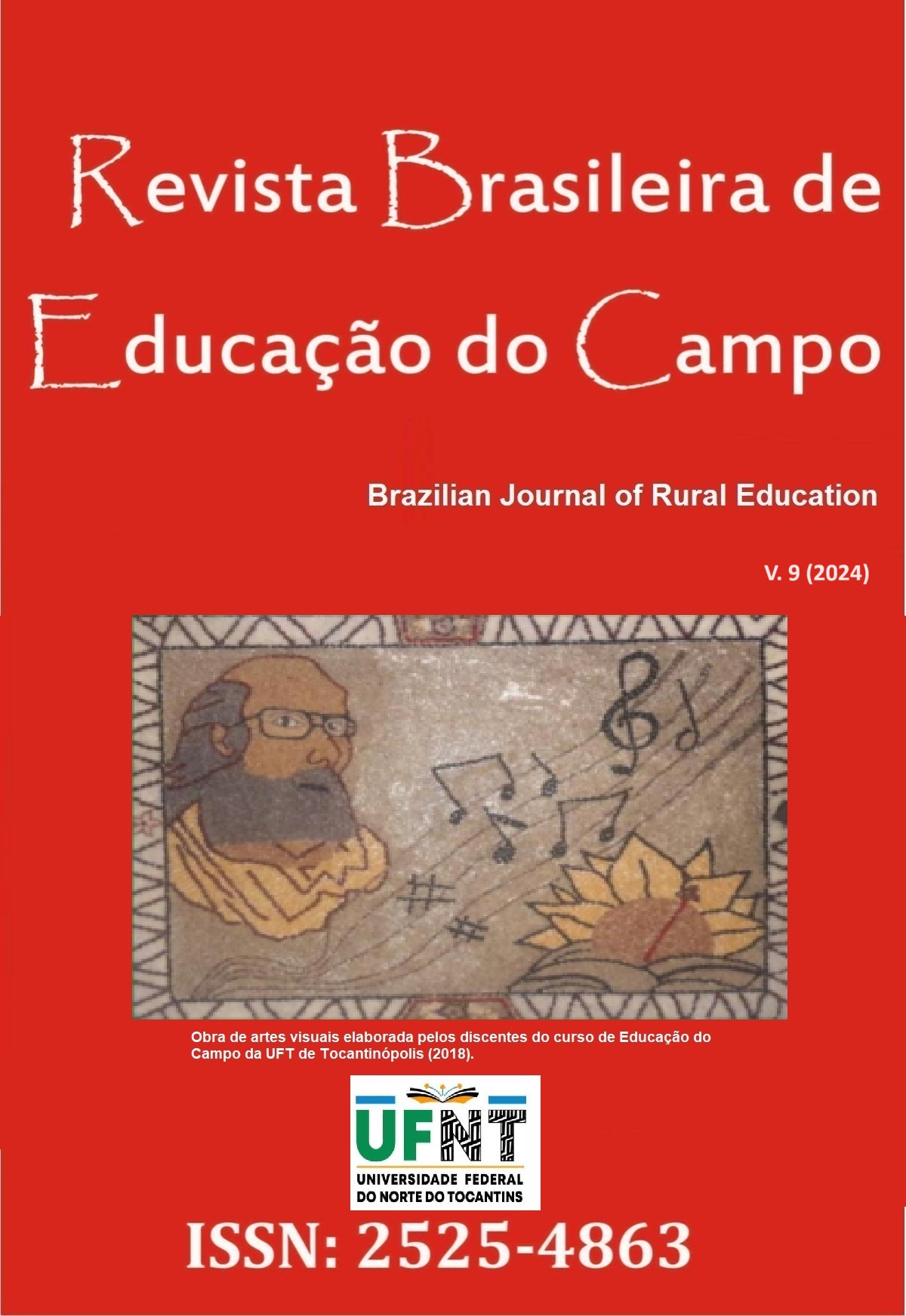The importance of reading in the education of people deprived of their liberty
DOI:
https://doi.org/10.70860/ufnt.rbec.e18230Abstract
ABSTRACT. Discussing education for individuals deprived of their freedom is a controversial topic. However, it provides the opportunity for the emergence of other paths and possibilities for further research in the area. The interest in the topic arose after learning about the Clube dos Livres extension project, from the Federal University of Northern Tocantins, developed at the Tocantinópolis Penal Unit with people deprived of liberty. This article, co-authored with the Advisor, is an excerpt from the research developed from a case study of the extension project. Thus, it is proposed to identify the meanings attributed by project participants to experiences with reading in prison, discuss some understandings of the rights attributed to these subjects, inside and outside prison, and how reading has the power to enhance the formation of readers even within an exclusionary space that is unfavorable for learning. We are looking for theorists who discuss literature and human rights aimed at people in situations of extreme vulnerability, as is the case of prisoners, aiming to answer the following question “How does reading, as an instrument of remission of sentence, contribute to the reading formation of subjects who have been in a situation of deprivation of liberty in the Tocantinópolis Penal Unit? To this end, qualitative research was developed, with an interpretative nature, within the area of Applied Linguistics (LA), using for this purpose semi-structured interviews that captured the perception of the subjects investigated with their experiences and how the educational processes experienced in prison contributed to live in society so that they felt included or not in society.
Downloads
Literaturhinweise
Bobbio, N. (1992). A era dos direitos. Rio de Janeiro: Elsevier.
Constituição da República Federativa do Brasil de 1988 (1988). Brasília, DF. Recuperado de: http://www.planalto.gov.br/ccivil_03/constituicao/constituicao.htm.
Lei nº 7.210, de 11 de julho de 1984. Institui a Lei de Execução Penal. Brasília, DF, 11 jul. 1984. Recuperado de: http://www.planalto.gov.br/ccivil_03/leis/l7210.htm.
Campos, A. (2019). Ler e escrever na prisão: experimentações em Tocantinópolis –TO. Brasília, (DF): Croma Tecnologias.
Campos, A., & Silva, V. L. (2020). Extensão Universitária e Cadeia Pública: uma experiência no Tocantins. Revista Brasileira de Execução Penal, 1(1), 103-121.
Castrillón, S. (2011). O direito de ler. In Castrillón, S. (Org.). O direito de ler e escrever. São Paulo: Pulo do Gato.
Dias, A. C. (2016). Literatura e educação literária: quando a literatura faz sentido(s). Revista Cerrados, 25, 221-228.
Foucault, M. (2015). A sociedade punitiva: curso no College de France. São Paulo: WMF Martins Fontes.
Freire, P. (2021). A importância do ato de ler em três artigos que se completam. São Paulo: Cortez.
Groulx, L-H. (2014). Contribuição da pesquisa qualitativa à pesquisa social. In Poupart, J., & et al. (Orgs.). A pesquisa qualidade. Petrópolis (RJ): Vozes.
Petit, M. (2021). A arte de ler ou como resistir à adversidade. 2. ed. São Paulo: Editora 34.
Ramos, R. S. (2016). Letramento na prisão? Curitiba: Appris.
Downloads
Veröffentlicht
Zitationsvorschlag
Ausgabe
Rubrik
Lizenz
Copyright (c) 2024 Eveliny Almeida Feitosa Jácome, Selma Maria Abdalla Dias Barbosa Barbosa

Dieses Werk steht unter der Lizenz Creative Commons Namensnennung 4.0 International.
Creative Commons Attribution License
Creative Commons Attribution License
Proposal for Copyright Notice Creative Commons
1. Policy Proposal to Open Access Journals
Authors who publish with this journal agree to the following terms:
A. Authors retain copyright and grant the journal right of first publication with the work simultaneously licensed under the Creative Commons Attribution License that allows sharing the work with recognition of its initial publication in this journal.
B. Authors are able to take on additional contracts separately, non-exclusive distribution of the version of the paper published in this journal (ex .: publish in institutional repository or as a book), with an acknowledgment of its initial publication in this journal.
C. Authors are permitted and encouraged to post their work online (eg .: in institutional repositories or on their website) at any point before or during the editorial process, as it can lead to productive exchanges, as well as increase the impact and the citation of published work (See the Effect of Open Access).














